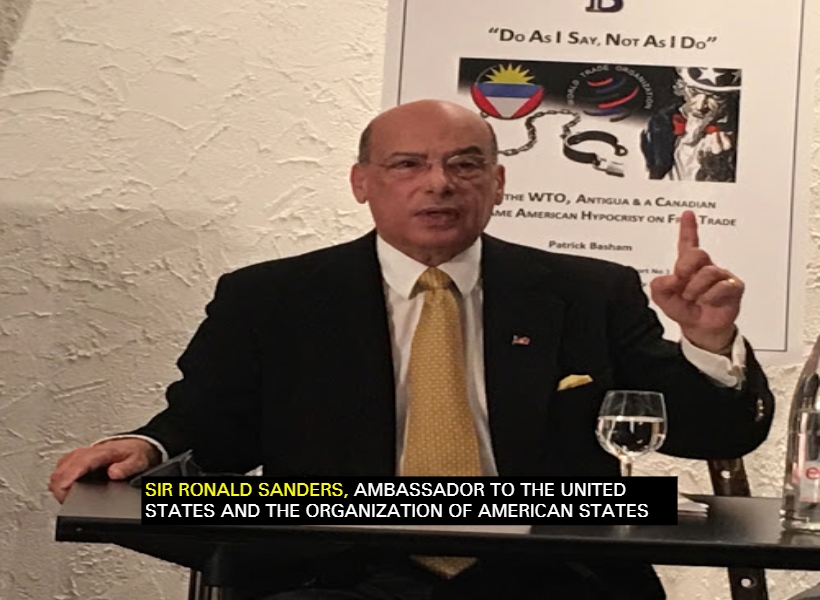Ambassador of Antigua and Barbuda to the United States and the Organisation of American States (OAS), Sir Ronald Sanders has described the PPP government’s Agri-Investment Forum held from 19 to 21 May, as arguably the most successful engagement by CARICOM leaders in the last 15 years.
Sir Saunders recalled that the forum was held amidst an enlarging global calamity that combines high prices for oil with shortages and record-high prices for food and agricultural inputs such as fertilizers. He noted that Russia’s invasion of Ukraine, one of the world’s six breadbasket regions, has pushed the global food system into a deeper economic crisis.
On the eve of the forum and exhibition, Sir Saunders highlighted that a joint survey by the CARICOM Secretariat and World Food Programme estimated that severe food insecurity in the Caribbean had increased by 72 percent, since the onset of the COVID-19 pandemic in early 2020. And the World Bank reported that the price of fertilizers increased by as much as 178 percent between March 2021 and March 2022.
Sir Saunders noted that the crisis facing CARICOM is one that clearly cries out for urgent attention that goes beyond words to practical measures. Therefore, the forum in Guyana he said set the stage for the CARICOM leaders to take action that would upset the status quo and forge a pathway to meaningful integration of CARICOM’s resources.
In the Outcome Statement that followed from Guyana’s forum, the envoy noted that leaders committed to tackling food insecurity, removing tariffs on CARICOM goods, and establishing regional transportation to get regionally produced food to every country in the region.
On food insecurity, Sir Saunders pointed out that President Irfaan Ali is expected to organize an existing Ministerial Task Force to produce an implementation schedule for the plan he presented to his colleagues last March. That plan intends to achieve a 25 percent reduction in the region’s food import bill by 2025. The preparation of the plan will involve all the stakeholders in agricultural production.
Regarding tariffs and non-tariff barriers that are imposed on CARICOM products, Guyana Standard understands that a Special Committee headed by Barbados’ Prime Minister Mia Mottley, will immediately prepare proposals, with time-bound deadlines, for eliminating such trade barriers. Should this happen, the Ambassador articulated that the “pause” on creating a Single Market might, at last, be released.
Additionally Mottley has been charged with completing a proposal for establishing adequate and sustainable regional transportation by July. The help of the international donor community and multilateral development agencies will be sought to support this effort, with the Caribbean Development Bank playing a role in mobilizing international resources, the envoy stated in a recent column.
Given the results of the forum, Sir Saunders has no doubt that the passion of President Ali has, without question, infected his colleagues to produce actionable proposals with firm deadlines for implementation.
Overall, Sir Saunders believes the Guyana Agri Forum has rekindled a new faith in regionalism – and the hope that fidelity to it will prevail.











